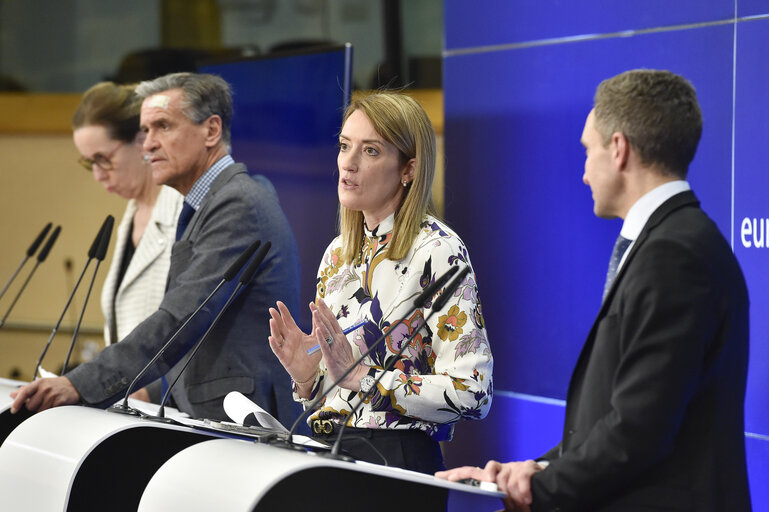EU states, MEPs reach long-awaited deal on new migration pact
Robin Pascoe
EU member states and the European parliament have finally agreed on five key regulations to cover asylum and migration which will go some way to meeting demands made by the four right wing parties currently in talks on forming a new government in the Netherlands.
The rules, which have been three years in the making, include the introduction of checks on all refugees arriving at the EU’s external borders, who will be told there and then if they can enter the block.
The plan also includes a fast-track procedure to deal with people from safe countries such as Morocco, Algeria and Bangladesh.
The legislation aims to end decades of crisis management and stop governments have been taking unilateral and uncoordinated measures to cope with the rise in asylum seekers.
“Following today’s provisional agreement, work will continue at a technical level in the coming weeks to flesh out the details of the new regulations,” the commission said in a statement.
The measures mean all refugees will be fingerprinted and photographed for an EU-wide database which will be accessible to all member states so officials can check if someone had requested asylum earlier in another country.
EU countries will also be able to pay other member states to process refugees on their behalf if they come under “migratory pressure” The aim is to compensate countries who take in relatively large numbers of refugees. New rules are also being drawn up to cover emergencies triggered by a major crisis.
The plans still have to be approved by the Council of Ministers but that will be by majority voting and no country will be able to veto the proposals. The European parliament must also ratify the treaty.
European elections
Pressure had been growing for an agreement ahead of next year’s European elections and the issue of migration had a central role in the November general election in the Netherlands.
The Netherlands has been struggling to provide proper housing for everyone claiming asylum, particularly at the Ter Apel reception centre. Belgium and France have had similar problems.
All four parties currently in talks on forming a new right-wing government want restrictions on asylum applications, with the far-right PVV calling for an immediate stop.
Historic deal
VVD MEP Malik Azmani, who is deputy president of the Renew group in the European parliament, described the agreement as “historic”. The VVD is one of the parties involved in the new Dutch cabinet talks.
“Our political group has been at the forefront to achieve results on this important topic for EU citizens,” he said. “The pact is finally delivering on a common European approach to better regulate migration by ensuring a fair sharing of responsibility and solidarity.”
However, the GreensEFA grouping said the agreement will change European asylum law “profoundly” and weaken humanitarian safeguards.
Disappointing
Caretaker asylum minister Eric van der Burg said the ruling would help the Netherlands “substantially” in the long term. “It will result in fewer people coming in, fewer moving on and fewer problems,” he said. “They will be spread more equally over Europe.”
But Aid group Save the Children said the proposal marked a new low in children’s rights. “It is scandalous that children of all ages, many with the trauma of their journey, will be placed in detention at the outer borders. This is unworthy of Europe.”
Dutch refugee charity Vluchtelingenwerk also said the proposal is “disappointing”.
Jaap Velema, mayor of Westerwolde which includes the Ter Apel centre, said he was positive about the move but that it is an “illusion” to think that no one will come to the Netherlands in the coming period to request asylum. “That is why something has to happen now. And until refugees are better spread around the Netherlands, the centre will be overflowing.”
Thank you for donating to DutchNews.nl.
We could not provide the Dutch News service, and keep it free of charge, without the generous support of our readers. Your donations allow us to report on issues you tell us matter, and provide you with a summary of the most important Dutch news each day.
Make a donation